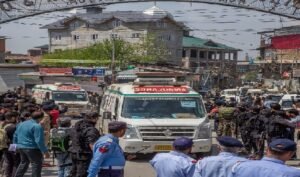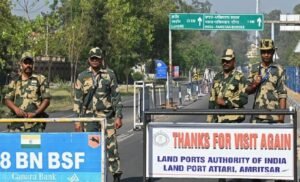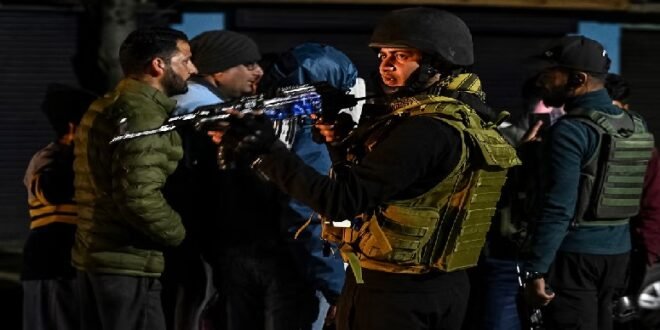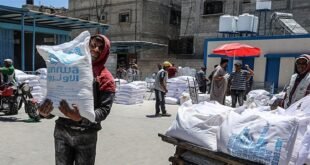25-04-2025
Bureau Report + Agencies
NEW DELHI/ ISLAMABAD: Tuesday’s bloodshed in Pahalgam where at least 26 tourists were killed in a hail of gunfire marks the deadliest militant attack in Indian-administered Kashmir since 2019.
The victims weren’t soldiers or officials, but civilians on holiday in one of India’s most picturesque valleys. That alone makes this strike both brutal and symbolic; a calculated assault not just on lives, but on a fragile sense of normalcy the Indian state has worked hard to project in the disputed region.
 Given the fraught history of Kashmir claimed in full by both India and Pakistan but ruled by each only in part India’s response is likely to be shaped as much by precedent as by pressure, say experts.
Given the fraught history of Kashmir claimed in full by both India and Pakistan but ruled by each only in part India’s response is likely to be shaped as much by precedent as by pressure, say experts.
For starters, Delhi has swiftly taken a series of retaliatory steps; closing the main border crossing, suspending a critical water-sharing treaty and expelling diplomats.
More significantly, Defence Minister Rajnath Singh has vowed a “strong response,” pledging action not just against the perpetrators but also the masterminds behind the “nefarious acts” on Indian soil.
The question, analysts say, is not whether there will be a military response but when, and how calibrated it will be and at what cost.
“We are likely to see a strong response one that signals resolve to both domestic audiences and actors in Pakistan. Since 2016 and especially after 2019, the threshold for retaliation has been set at cross-border or air strikes,” military historian Srinath Raghavan told media.
“It’ll be hard for the government to act below that now. Pakistan will likely respond, as it did before. The risk, as always, is miscalculation on both sides.”
Raghavan is alluding to two previous major retaliations by India in 2016 and 2019.
After the deadly Uri attack in September 2016, where 19 Indian soldiers were killed, India launched what it called “surgical strikes” across the de facto border also known as the Line of Control (LoC) targeting what it said were militant launch pads in Pakistan-administered Kashmir.
 And in 2019, after at least 40 paramilitary personnel were killed in Pulwama, India hit an alleged militant camp in Balakot with airstrikes its first such strike deep inside Pakistan since 1971. Pakistan responded with air raids, leading to a dogfight and the brief capture of an Indian pilot. Both sides showed strength but avoided full-scale war.
And in 2019, after at least 40 paramilitary personnel were killed in Pulwama, India hit an alleged militant camp in Balakot with airstrikes its first such strike deep inside Pakistan since 1971. Pakistan responded with air raids, leading to a dogfight and the brief capture of an Indian pilot. Both sides showed strength but avoided full-scale war.
Two years later, in 2021, they agreed to a LoC ceasefire, which has largely held despite recurring militant attacks in Indian-administered Kashmir.
Michael Kugelman, a foreign policy analyst, believes that the combination of high fatality levels and the targeting of Indian civilians in the latest attack “suggests a strong possibility of an Indian military response against Pakistan, if Delhi determines or merely assumes any level of Pakistani complicity”.
“The chief advantage of such a reaction for India would be political, as there will be strong public pressure for India to respond forcefully”, he told media
“Another advantage, if a retaliation successfully takes out terrorist targets, would be restoring deterrence and degrading an anti-India threat. The disadvantage is that a retaliation would risk a serious crisis and even conflict.”
What are India’s options?
Covert action offers deniability but may not satisfy the political need to visibly restore deterrence, says Christopher Clary of the University at Albany in the US.
That leaves India with two possible paths, he notes.
 Pressmediaofindia
Pressmediaofindia




